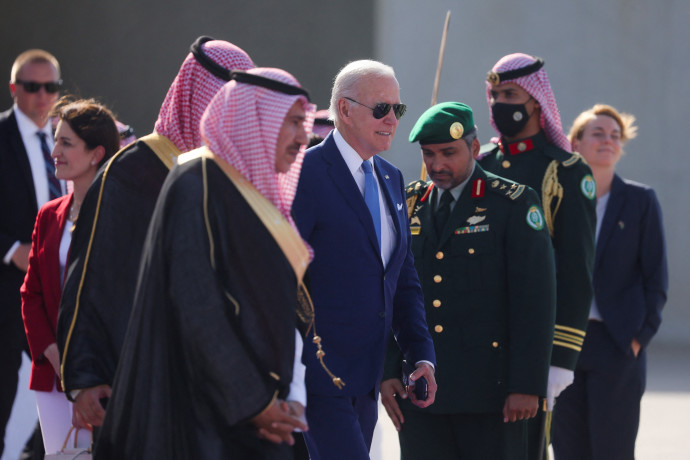US President Joe Biden is re-evaluating the US relationship with Saudi Arabia after OPEC+ announced last week that it would cut oil production, White House national security spokesman John Kirby said on Tuesday.
"I think the president's been very clear that this is a relationship that we need to continue to re-evaluate, that we need to be willing to revisit," Kirby said in an interview with CNN. "And certainly in light of the OPEC decision, I think that's where he is."
"I think the president's been very clear that this is a relationship that we need to continue to re-evaluate, that we need to be willing to revisit, and certainly in light of the OPEC decision, I think that's where he is."
White House national security spokesman John Kirby
Biden is willing to work with Congress on the future of Saudi relations, Kirby said.
Bob Menendez, the Democratic chairman of the US Senate Foreign Relations Committee, on Monday, called for a freeze on cooperating with Saudi Arabia, including on most arms sales, accusing the kingdom of helping to underwrite the Russian war in Ukraine after OPEC+ announced last week that it would cut oil production.
Biden was disappointed with the OPEC+ decision, Kirby said, and "he's willing to work with Congress to think through what that relationship ought to look like going forward."

"And I think he's going to be willing to start to have those conversations right away. I don't think this is anything that's going to have to wait or should wait, quite frankly, for much longer," Kirby said.
The issue does not only concern the war in Ukraine but it is a matter of US national security interests, he said.
Dennis Ross, Distinguished Fellow at The Washington Institute for Near East Policy, told The Jerusalem Post that it should not come as a surprise that the President is responding to the Saudi decision on oil production.
“While the Saudis present this as an oil market decision, the Administration was not likely to see it divorced from the President’s visit to the Kingdom and to Putin’s actions in Ukraine and his related nuclear threats,” Ross said.
“Clearly, the relationship exists because of unmistakable mutual interests and to keep it on a sound footing, it needs to reflect those interests and larger needs,” he said.
“No doubt there will and should be discussions now to keep the relationship within certain bounds. Personally, I would like to see the Saudis not implement the cuts and work out some understandings with the administration.”
Dan Arbell, Scholar in Residence at American University and a former Israeli senior diplomat, said that the reaction on the Hill is a result of bipartisan frustrations over Saudi Arabia's support for the OPEC+ decision, which helps Putin in the midst of the war against Ukraine, “as well as Democratic anger over what is viewed as a Saudi slap in the face to President Biden's reach out to the Kingdom.”
“The Biden Administration needs to be cool-headed with its response, as some of the bills advanced by members of Congress are driven by pressure from the US energy sector and do not take into account US geopolitical interests,” Arbell said. “Nevertheless, the Administration is expected to use tougher language in its messaging.”
Normalization between Israel and Saudi Arabia
Asked about the possible prospects of normalization between Israel and Saudi Arabia, given the tense relationship between Washington and Riyadh, Arbell said that “at present, Israeli-Saudi normalization is on the back burner for different reasons.”
“These US-Saudi tensions will not make efforts to bring about normalization with Israel any easier,” he noted.
Elliott Abrams, senior fellow for Middle Eastern studies at the Council on Foreign Relations (CFR) in Washington, said that the Biden administration’s policy “is a complete failure – and it is mostly Biden’s fault.”
Saying he would make Saudi Crown Prince and Prime Minister Mohammed bin Salman (MBS) and the entire country a pariah was damaging, said Abrams, “especially when he has not used such language – “pariah” – about Xi despite Chinese genocide in Xinjiang.
“People in Congress are angry about Saudi maximization of oil profits, but they are making two calculations,” he explained: “First, they need to get maximum profits from oil in the coming years because the world is moving away from fossil fuels. They will not have these profit levels forever. Second, they feel they owe Biden nothing because when Saudi oil facilities were attacked in 2021, the United States did not act.”
“Freezing all aspects of our relationship is foolish and even dangerous,” Abrams continued. “It would be better to send a few wise former officials to visit there and talk through quietly what kind of relationship we want and they want.”
